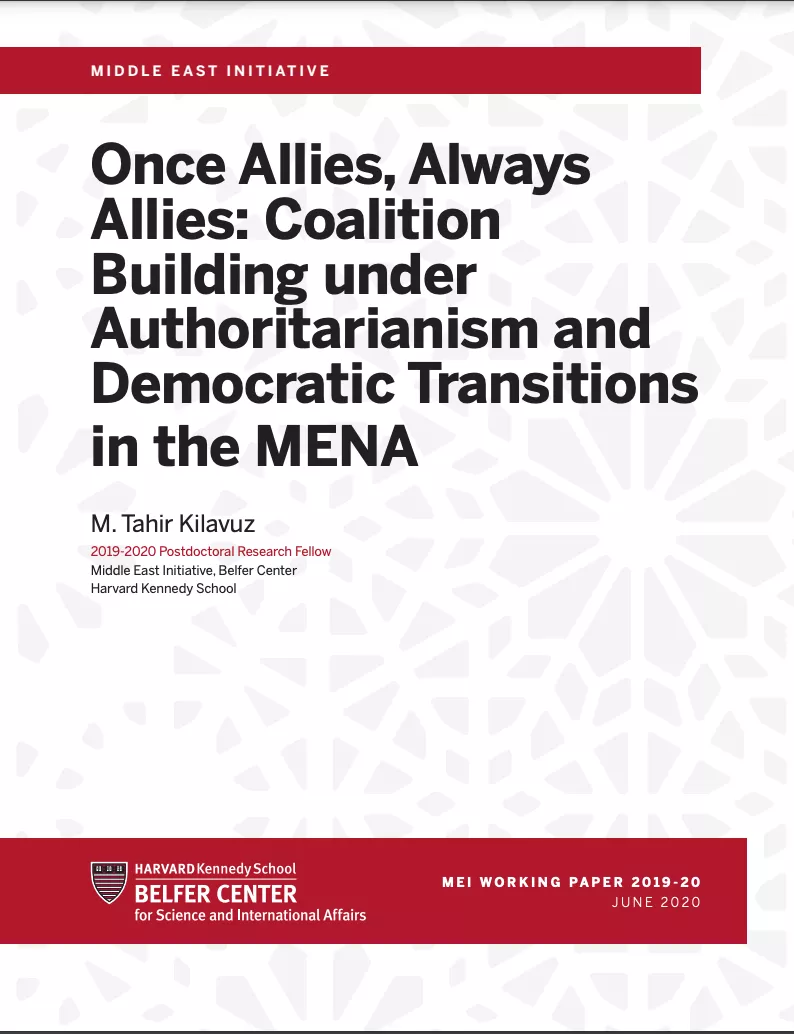Note
This paper is a part of the Middle East Initiative Research Series, which presents the work of MEI Research Fellows, Harvard Faculty Research Grant Recipients, and other MEI research affiliates. View the full series here.
Abstract
The democratization literature has long explained divergent transition outcomes with elite cooperation; however, these explanations remained short of demonstrating why and when elites cooperate for a successful transition. This study aims to understand the roots of cooperation during transitions in the Middle East and North Africa (MENA) and its impact on transition outcomes. It argues that roots of cooperation can be found in the period preceding the transition. Successful past coalition building experience among opposition elites produce an organizational capital, trust and a shared vision that help them to credibly signal each other to commit to cooperation during transition. An in-depth analysis of one successful (Tunisia) and two failed (Algeria and Egypt) transition attempts shows how diverging coalition building experiences shaped transition outcomes. Original survey experiments with elites and pro-democracy protestors further indicate that resources derived from coalition experiences specifically help seculars to perceive Islamists as potential allies for transition.

Kilavuz, M. Tahir. “Once Allies, Always Allies: Coalition Building under Authoritarianism and Democratic Transitions in the MENA.” June 2020



